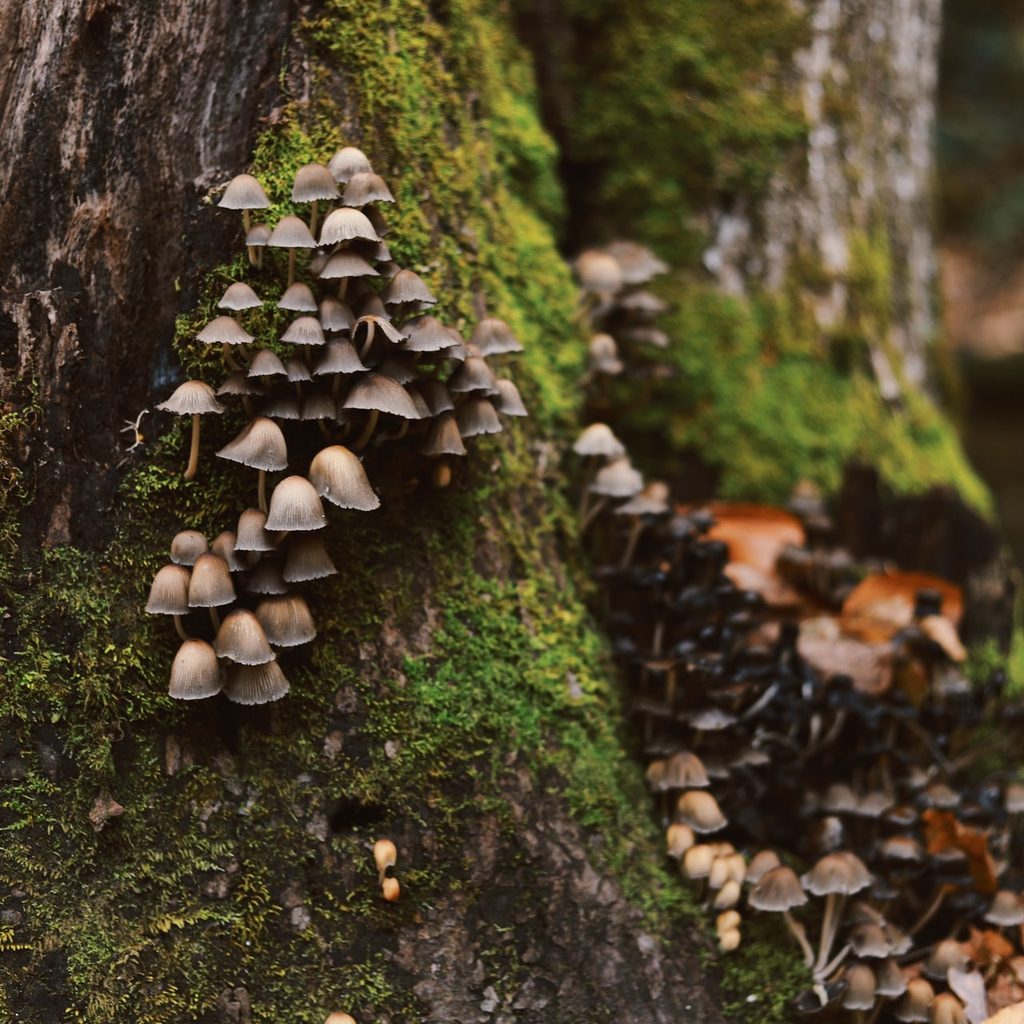We’ve been taught our whole lives that mold on our food is a bad sign and we should throw out whatever’s infected. So naturally, as beginner gardeners, when we see mold or fungi growing in our soil, we assume it’s terrible. However, this couldn’t be further from the truth. Fungi are an essential part of your garden’s ecosystem. Here, we’ll talk through what fungi are, why it’s beneficial, and when it might be harmful.

What are fungi?
Yeast, mildew, molds, mushrooms, oh my! Fungi are everywhere, and they come in a staggering number of colors, shapes, sizes, and textures. Unlike almost anything else on planet earth, fungi digest organic matter externally before they absorb it into themselves. They don’t require chlorophyll, which separates them from plants, and their unique way of feeding themselves clearly differentiates them from animals and insects. So fungi are a unique and fascinating class of their own. And they’re everywhere from the air to the soil and in lakes, rivers, seas, and even within plants, animals, food, clothing, and our own body.
Since we can’t get away from them, let’s learn more about why they’re so crucial for the earth’s ecosystem and your garden.
Why fungi are beneficial in the garden
As a beginner gardener, you might just be learning that the essential elements in your soil are nitrogen, phosphorus, potassium, carbon, and oxygen. As it turns out, fungi and bacteria are responsible for breaking down organic material and releasing these elements back into the soil, water, or air. This is the main reason why fungi are so essential to your garden. So if you see tiny mushrooms growing in your garden, you might want to do a little happy dance! Mushrooms and other fungi growing in your garden or compost pile is a sign that your soil is very healthy and likely to do a fantastic job at supporting your plants.
So while that might be enough to convince you that fungi are your friend when in your garden, that’s not the only reason you should be grateful for them. Fungi also send out a complex network of filaments called hyphae. These hyphae connect to the roots of the plants around them and communicate with each other in a way that benefits the fungi and the plant. Plants that live with fungi are known to have an increased ability to take in water, have a higher tolerance for drought, be more disease resistant, and have an accelerated growth rate at every stage of life.
Fungi are also beneficial to the soil. They increase the soil’s ability to drain water away, which decreases the risk of root rot and also lowers the risk of soil-born diseases.

When fungi are harmful in the garden
There are a few fungi and mold that we’re not fans of and that can be harmful to your plants. However, these are almost always found on the plant’s leaves, fruits, or stems and look very different from our happy little friends in the soil.
Some of the most common fungi diseases in plants are black spot, rust, botrytis blight, and powdery mildew. These can ruin entire crops of squash, tomatoes, cucumbers, and almost any other plant within your garden. So how do you avoid these nasty fungi and protect your garden? First, it’s essential to look for disease-resistant varieties of plants when you can. Squash plants are notorious for getting powdery mildew as the season gets warmer and warmer. Sometimes there isn’t anything you can do, and harvesting before the mildew hits is your best option. However, prevention is the best way to protect your garden.
While we don’t entirely condone drenching your soil in fungicide, it is an option. This will keep away the fungi, sure, but it won’t know the difference between good and harmful fungi, so you’ll be losing all those other benefits by using this method.
What we recommend is keeping up with your garden maintenance. This means not over or underwatering, keeping weeds at bay, mulching, and pruning your plants as the season goes on. Good airflow, sufficient water supply, and keeping away weeds will protect your plants from fungi, root rot, and a plethora of other issues that could ruin a crop. Luckily, all these rules also help the beneficial fungi and allow your plants to thrive.
Now that you know what fungi are, why they’re beneficial, and when they might not be, you can enjoy those cute little mushrooms in your soil and protect your plants from the not so nice molds.


